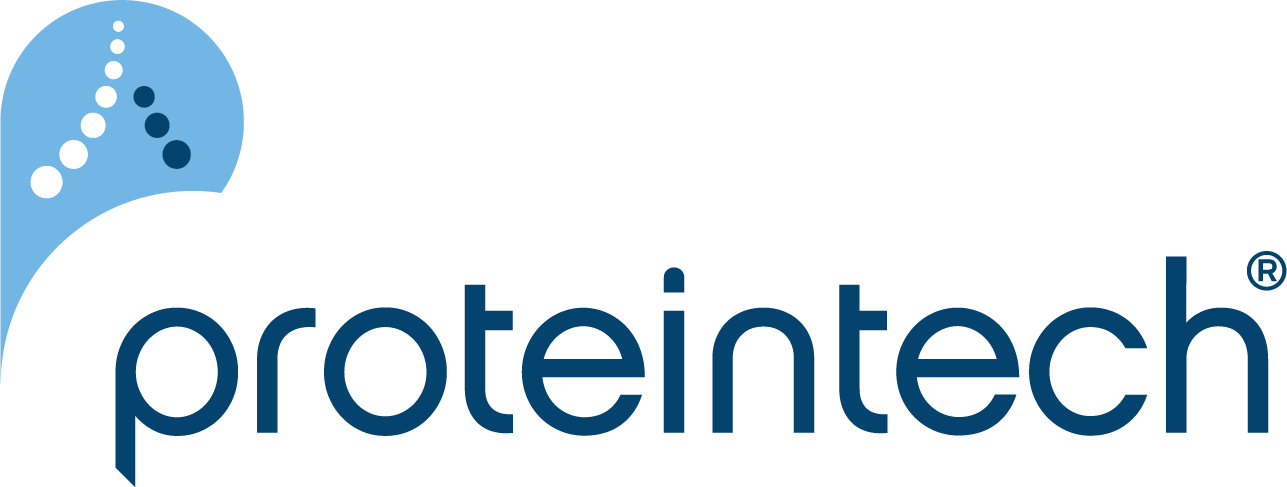News
Press Release
Introducing “Able” AI – A First-of-Its-Kind Tool to Accelerate Scientific Discovery
Press release - Businesswire - ROSEMONT, IL – 02 September 2025. Smarter research starts with Able
Non visible textWebinar
Daily careers workshops from March 23rd to 27th 2026
Register your free place for Careers Week 2026. Join experts from academia, industry, and beyond as they share their insights and experiences of career paths for PhDs.
Non visible textTravel Grant
AACR Travel Grant for Cancer Researchers
Submit your abstract for a chance to earn $2,000 for travel expenses to the American Association for Cancer Research annual meeting in San Diego, CA, April 2026. Abstract Deadline: Feb 27th.
Non visible textPromotions
Offer ends soon: 20% Off Phospho-specific Antibodies
Available in a variety of conjugated formats. 170+ common PTMs
Non visible textGiveaway
Tried AbleAI? Share your experience for a chance to win an iPad
AbleAI is a first-of-its-kind AI assistant built to support researchers. Share your feedback for a chance to win an iPad or Amazon gift card.
Non visible textPodcast
Ep 6 - Is Your Body a Quantum Machine?
Dr. Akhil Jain, a leading voice in Quantum Biology and Bioelectricity, explores how quantum physics and electrical fields may represent a newly emerging central dogma in life science research.
Non visible textProduct
Advance your organoid research with HumanKine
Browse high-quality HumanKine growth factors, antibodies, ELISA kits, and more. Enter the organoid giveaway.
Non visible textOnline Learning
New course: Introduction to R for Life Scientists
Take away the stress of learning to code with this beginner friendly R coding course. Learn how to use R in Google Colab to perform accurate immunoassay data analysis.
Non visible textPress Release
Proteintech launches New Multi-rAb Recombinant Secondary Antibodies
This New Generation of Secondary Antibodies has superior sensitivity, high reproducibility.
Non visible textProduct
Proteintech launches worlds first GMP grade R-Spondin 1
Optimised for improved and consistent organoid differentiations.
Non visible textPress Release
Proteintech Genomics launches new MultiPro Immune Profiling Cocktail
The first commercially available solution for the detection of intracellular proteins for single-cell RNAseq experiments
Non visible textPress Release
Introducing “Able” AI – A First-of-Its-Kind Tool to Accelerate Scientific Discovery
Press release - Businesswire - ROSEMONT, IL – 02 September 2025. Smarter research starts with Able
Non visible textWebinar
Daily careers workshops from March 23rd to 27th 2026
Register your free place for Careers Week 2026. Join experts from academia, industry, and beyond as they share their insights and experiences of career paths for PhDs.
Non visible textTravel Grant
AACR Travel Grant for Cancer Researchers
Submit your abstract for a chance to earn $2,000 for travel expenses to the American Association for Cancer Research annual meeting in San Diego, CA, April 2026. Abstract Deadline: Feb 27th.
Non visible textPromotions
Offer ends soon: 20% Off Phospho-specific Antibodies
Available in a variety of conjugated formats. 170+ common PTMs
Non visible textGiveaway
Tried AbleAI? Share your experience for a chance to win an iPad
AbleAI is a first-of-its-kind AI assistant built to support researchers. Share your feedback for a chance to win an iPad or Amazon gift card.
Non visible textPodcast
Ep 6 - Is Your Body a Quantum Machine?
Dr. Akhil Jain, a leading voice in Quantum Biology and Bioelectricity, explores how quantum physics and electrical fields may represent a newly emerging central dogma in life science research.
Non visible textProduct
Advance your organoid research with HumanKine
Browse high-quality HumanKine growth factors, antibodies, ELISA kits, and more. Enter the organoid giveaway.
Non visible textOnline Learning
New course: Introduction to R for Life Scientists
Take away the stress of learning to code with this beginner friendly R coding course. Learn how to use R in Google Colab to perform accurate immunoassay data analysis.
Non visible textPress Release
Proteintech launches New Multi-rAb Recombinant Secondary Antibodies
This New Generation of Secondary Antibodies has superior sensitivity, high reproducibility.
Non visible textProduct
Proteintech launches worlds first GMP grade R-Spondin 1
Optimised for improved and consistent organoid differentiations.
Non visible textPress Release
Proteintech Genomics launches new MultiPro Immune Profiling Cocktail
The first commercially available solution for the detection of intracellular proteins for single-cell RNAseq experiments
Non visible textFeatured Products
GAPDH Monoclonal Antibody
| Reactivity: | Human, Mouse, Rat, Yeast, Plant, Zebrafish, Bovine and more (9) |
| Applications: | WB, IP, IHC, IF, FC, CoIP, ChIP, ELISA |
TDP-43 Polyclonal Antibody
| Reactivity: | Human, Mouse, Rat, Zebrafish, Hamster, Pig and more (6) |
| Applications: | WB, RIP, IP, IHC, IF, IEM, FC, CoIP, chIP, ELISA |
ChromoTek GFP-Trap® Agarose
| Specificity: | GFP, eGFP, CFP, YFP, BFP |
| Applications: | IP, CoIP, ChIP, RIP |
HumanKine® recombinant human TGF beta 1 protein
HEK293 expressed.Animal-component free.
| Purity: | >95% |
| Activity: | Typically ≤ 0.5 ng/mL EC50 |
GAPDH Polyclonal antibody
| Reactivity: | Human, Mouse, Rat, Pig, Arabidopsis, Corn, Cabbage, Rice and more (9) |
| Applications: | WB, RIP, IP, IHC, IF, FC, CoIP, ELISA |
Beta Actin Monoclonal antibody
| Reactivity: | Human, Mouse, Rat, Pig, Plant, Zebrafish And More (10) |
| Applications: | WB, IP, IHC, IF, FC, CoIP, ELISA |
BAX Polyclonal antibody
| Reactivity: | Human, Mouse, Rat, Chicken, Goat, Hamster, Pig, Rabbit and more (3) |
| Applications: | WB, IP, IHC, FC, CoIP, chIP, ELISA |
Caspase 3/p17/p19 Polyclonal antibody
| Reactivity: | Human, Mouse, Rat, Bovine, Chicken, Duck, Goat, Hamster and more (3) |
| Applications: | WB, RIP, IP, IHC, IF, FC, ELISA |
E-cadherin Polyclonal antibody
| Reactivity: | Human, Mouse, Rat, Bovine, Pig, Zebrafish |
| Applications: | WB. IF, WB, IP, IHC, IF, FC, CoIP, ELISA |
NF-κB p65 Polyclonal antibody
| Reactivity: | Human, Mouse, Rat, Bovine, Pig, Canine, Fish and more (4) |
| Applications: | WB, IP, IHC, IF, FC, chIP, ELISA |
Vimentin Polyclonal antibody
| Reactivity: | Human, Mouse, Rat, Bovine, Pig, Deer |
| Applications: | WB, IP, IHC, IF, FC, CoIP, ELISA |
P62,SQSTM1 Polyclonal antibody
| Reactivity: | Human, Bovine, Chicken, Goat, Hamster, Pig, Rabbit and more (3) |
| Applications: | WB, IP, IHC, IF, FC, CoIP, ELISA |
MMP9 (N-terminal) Polyclonal antibody
| Reactivity: | Human, Mouse, Rat, Pig, Rabbit, Hamster, Astragalus Membranaceus |
| Applications: | WB, IP, IHC, IF, FC, CoIP, ELISA |
Alpha Tubulin Polyclonal antibody
| Reactivity: | Human, Mouse, Rat, Bovine, Chicken, Goat, Hamster, Monkey, P. Lividus, Pig |
| Applications: | WB, IP, IHC, IF, FC, CoIP, ELISA |
ARL13B Polyclonal antibody
| Reactivity: | Human, Mouse, Rat, Canine, Chicken, Pig, Sheep, Xenopus, Zebrafish |
| Applications: | WB, IP, IHC, IF, ELISA |
Lamin B1 Polyclonal antibody
Shows reactivity with Human, Mouse, Rat and Pig.
| Reactivity: | Human, Mouse, Rat, Pig, Canine, Chicken, Hamster |
| Applications: | WB, IP, IHC, IF, FC, ChIP, ELISA |
P53 Polyclonal antibody
| Reactivity: | Human, Rat, Mouse, Goat, Pig and more (3) |
| Applications: | WB, IP, IF, CoIP, chIP, ELISA |




